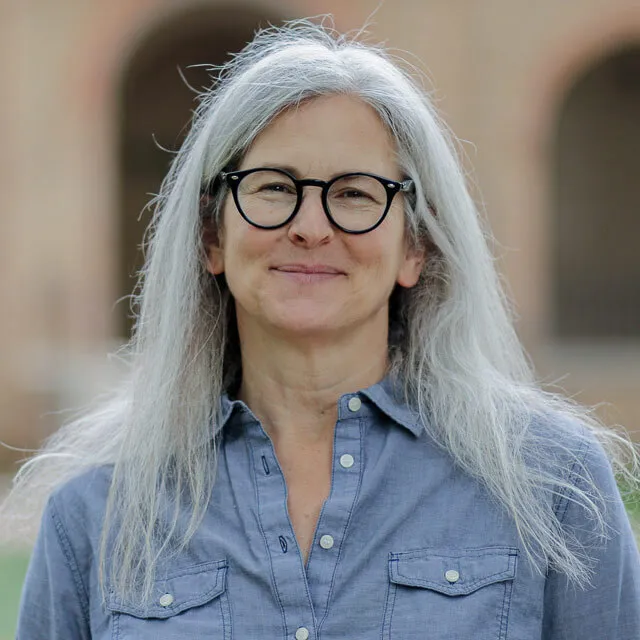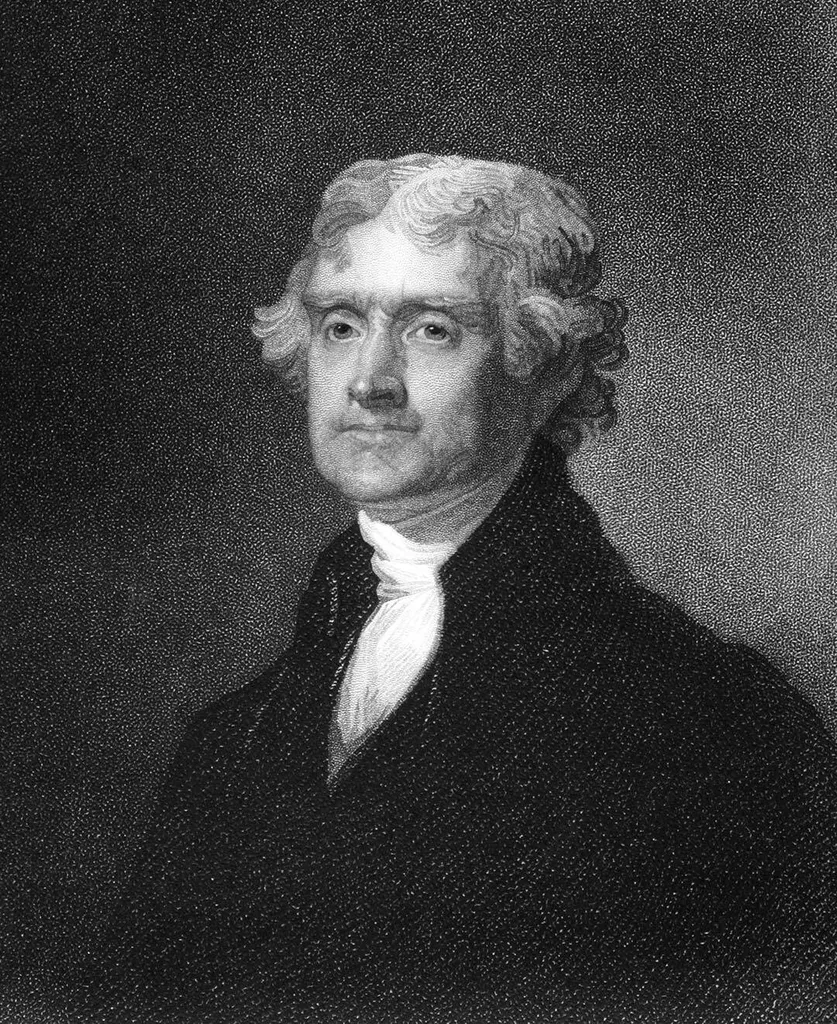- February 20, 2025
- By Maggie Haslam
Students hurrying past McKeldin Library on route to statistics class may never steal a glimpse of the quote etched into its stony facade, “The field of knowledge is the common property of mankind.”

Who chose the quote is lost to the annals of UMD’s history, but the words belonged to Thomas Jefferson, says Susan Kern, director of UMD’s Historic Preservation Program. A self-described “reluctant” Jefferson scholar and the global authority on his early life, Kern has spent her career helping to weave the complex narrative of the Declaration of Independence’s author and third U.S. president: a man whose ideas about education, democracy and religious freedom helped launch “the Land of the Free,” even as he held hundreds in chains.
“This is the challenge of Jefferson,” she said. “He wrote the promissory note of the United States, which still holds enduring power. But his legacy is heavy.”
Before coming to Maryland, Kern directed Monticello’s archeology department where she oversaw the documentation of Shadwell, Thomas Jefferson’s childhood home. She later wrote “The Jeffersons at Shadwell,” which tells the story of the Jefferson family, the 60 enslaved people who worked the property and their role in shaping Colonial Virginia.
Kern’s latest take on Jefferson is unfolding this week on “Thomas Jefferson,” a new six-part documentary series airing on the History Channel, where she and other historians share new insights on his personal life, political career and the paradoxes in them both. Below, Kern shares six truths to be self-evident (if not widely known):
Jefferson’s revolutionary spirit wasn’t inherited. For centuries, history offered a humble narrative around Jefferson’s early years as son of a backwoods revolutionary. But the remnants found by Kern and her team at Shadwell, which burned to the ground in 1770, tell a different, “richer” story. Within the footprint of the house was evidence of well-appointed bedrooms, a dining room that seated 20, china, fine furnishings, even items emblazoned with the coat of arms of King George II. “That evidence dispelled the log cabin version of the Jefferson we knew, when in fact his father was absolutely politically, economically and socially connected across Virginia,” said Kern. Jefferson’s British ties, in fact, were crucial to setting the stage for a revolution: “He and his peers knew British law so well, they could see where the problems were.”
Jefferson’s defense of America is also one of its best historical documents. In his book, “Notes on the State of Virginia,” Jefferson aimed to dispel the inferior reputation of the New World held by Europeans and proliferated by the turned-up noses of Enlightenment-Era writers like Comte de Buffon. But Jefferson’s effort to save face inadvertently created one of the largest compendiums of natural and social history of early America, including a record of languages spoken by Native Americans that exists nowhere else. “He was trying to prove Europe wrong on a lot of these aspects of the New World,” said Kern. And because of that, we have an unparalleled documentation of this country in its infancy.” (She also noted that the book includes some of Jefferson’s most offensive language about Black people.)

Jefferson was against the idea of slavery in principle—but was a slave holder until his death. Despite frequently writing about the wrongs of slavery for Black and white people, the guy who penned “all men are created equal” also enslaved close to 700 people in his lifetime at Monticello; the only ones ever emancipated were his own children. “You can’t tell the story of Jefferson without talking about slavery,” said Kern. “While he condemned it as a system, he was much too comfortable in his own house to do anything about it.”
Jefferson’s last pen pal was once his biggest adversary. Jefferson was a prolific letter-writer, offering an extraordinary account of his life. “It’s one of the reasons we know so much about him,” said Kern. In his final years, he exchanged missives frequently with a former political foe and presidential precursor, John Adams. They corresponded until both died on Independence Day, 1826. “Their letters document these two presidents looking backward and forward at the nation they helped create.”
Jefferson wanted a better epilogue than Washington. After seeing George Washington’s legacy tarnished after his death, he left explicit instructions to his heirs on what should happen with all his papers. Jefferson was highly calculating about how he wanted to be remembered; but he could never have expected his portrayal centuries later by African American actor Daveed Diggs in “Hamilton” on Broadway, but Kern was thrilled. “A friend of mine from Monticello and I went to New York and saw the original cast,” she said.
He was our nation's earliest advocate of affordable or free education. Jefferson long believed that attainable public education was a bulwark of democracy. Not only did he endorse the idea of universal grammar school for boys and girls, he stressed that the cost should not be a barrier at any level, a philosophy that informed the creation of land grant institutions like UMD and the U.S. public education system. “Jefferson said that ‘Education makes people the ultimate guardians of their own liberty. Every government degenerates when trusted to the rulers of the people alone,’” said Kern.
